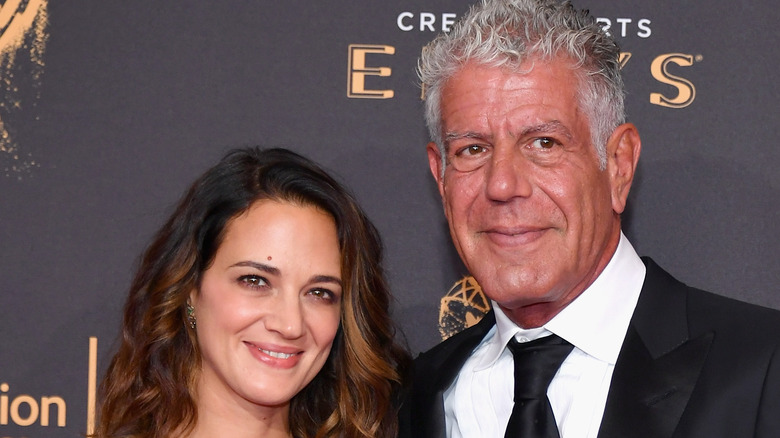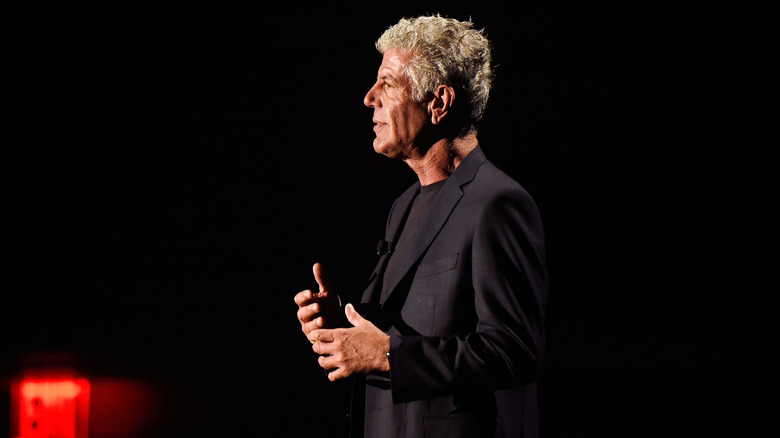The Real Reason Asia Argento Wasn't Interviewed For Roadrunner
For a documentary focused on the effects of Anthony Bourdain's life as a public figure, the documentary "Roadrunner" gives his final romantic relationship with Asia Argento very little attention. Of course, the omission attracted questions, like the one IndieWire asked director Morgan Neville about, namely, at what point during the process had he made the decision to not include her.
Neville said he had decided against interviewing Argento pretty late in the film's editing and tossed out a few reasons why. First, he wasn't sure she would say anything different than what she has shared since his death. "I looked at everything she'd said in interviews after Tony died. I pretty much know what she'd say, which is that she loved him, and felt misrepresented by people," he asserted.
Neville also suspected that the other interviewees he featured would have been upset due to how people in his inner circle had seemed separated from Bourdain after he began dating Argento. "I also knew, honestly, that to interview her, you would incur a lot of bad blood from lots of people in Tony's life. So there was a price to pay, too," Neville admitted.
But, the main reason Neville presented, was a bit more serious. "We'd been editing for a long time," he told IndieWire, "and part of it is, that once you start getting into the revelations that came out after he died — that he was supporting lawsuits, things like that — once you start to crack the door open on that, it just becomes insanely complicated." He added, "There were so many things in their story that the moment you crack it open ... all I would get is 10 more questions. It just made the film spiral."
Bourdain is said to have thrown himself into his relationship with Argento
In a review of "Roadrunner" for The New Republic, critic David Klion presents an account of a broadly good film with one thorn — and that has to do with the complexity of the lawsuits surrounding Bourdain and girlfriend Asia Argento that director Morgan Neville deemed extraneous to the story.
Argento was, of course, one of the main people to accuse Harvey Weinstein of abuse. However, as Klion also points out, two months after Bourdain's death, The New York Times found that Argento had paid $380,000 to Jimmy Bennett who claimed he had been assaulted by Argento when he was 17. And Bourdain allegedly had helped pay some of the money. The ambiguity of the actions taken in the Bennett case, while also championing Argento during #MeToo, struck Klion as a glaring gap — but not one that necessarily sinks the film.
That said, other reviews, like the one on TwinCities.com, note the hesitancy to deal with the subject, with the film pitting Argento as a contributing factor that led to Bourdain's death. To decide to not to include her in any respect continues to be questioned when you consider how deeply Bourdain threw himself into their relationship.
If you or anyone you know has been a victim of sexual assault, help is available. Visit the Rape, Abuse & Incest National Network website or contact RAINN's National Helpline at 1-800-656-HOPE (4673).
If you or anyone you know is having suicidal thoughts, please call the National Suicide Prevention Lifeline at 1-800-273-TALK (8255).

